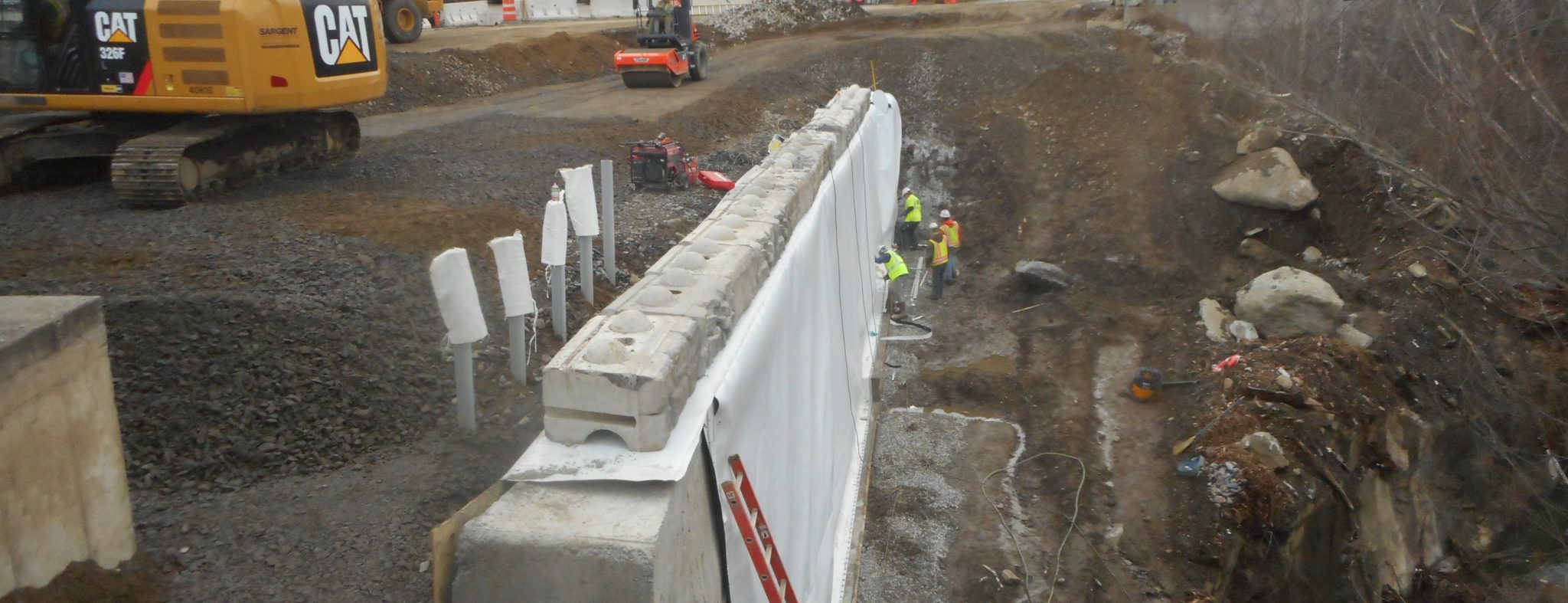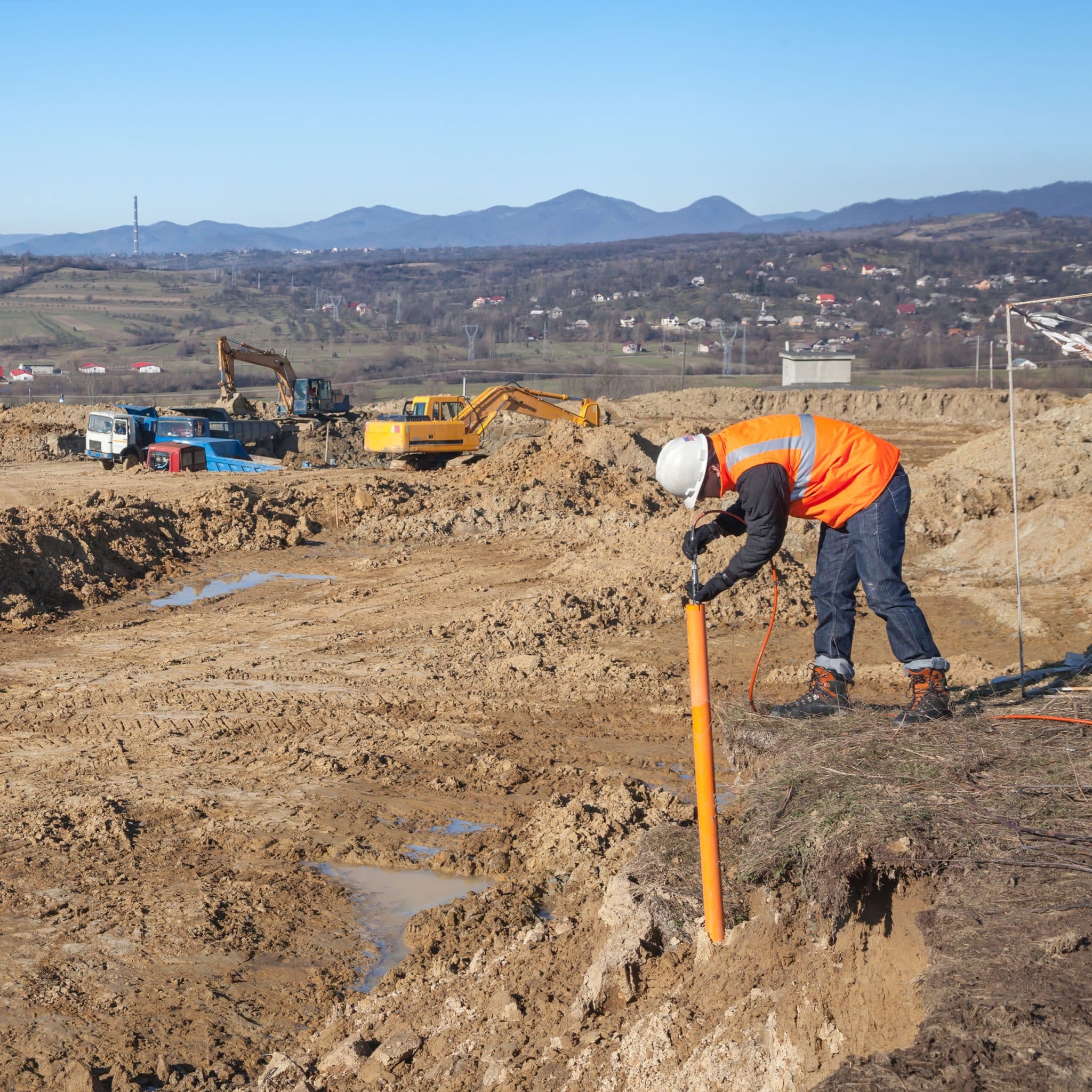Professional Consulting Engineer Solutions for Ingenious Framework Solutions
Wiki Article
Understanding the Crucial Function of the Geotechnical Industry in Modern Building And Construction Projects and Facilities Growth
The geotechnical sector is a foundation of modern building and construction and infrastructure growth, offering essential understandings right into soil actions that directly affect job end results. With innovative soil analyses and innovative design solutions, geotechnical experts not just guarantee structural integrity yet also address sustainability worries in the middle of developing ecological criteria. As framework needs grow and brand-new challenges emerge, the value of this area ends up being significantly apparent. What implications might these growths have for future tasks and the overall security of our constructed environment?Importance of Soil Assessment
Soil assessment plays a vital role in the geotechnical sector, working as the structure for notified decision-making in building and construction tasks. Precise soil assessment is vital for figuring out the suitability of a site for various sorts of frameworks, consisting of property homes, industrial buildings, and bridges. By analyzing dirt make-up, dampness, thickness, and stamina material, engineers can prepare for prospective challenges and mitigate threats related to ground instability, erosion, and negotiation.The evaluation process generally involves a collection of tests and monitorings that offer vital info about the subsurface problems. This data notifies the style and building processes, making certain that structures are built on solid ground with appropriate support. Understanding the soil account enables designers to select suitable building techniques and products, optimizing resource utilization and minimizing costs.
Along with guaranteeing architectural honesty, soil assessment adds to ecological sustainability. By determining potential contamination or negative impacts on bordering communities, designers can apply strategies to secure these natural deposits. Overall, complete dirt assessment is essential in the geotechnical field, underpinning the security, performance, and ecological responsibility of construction jobs.
Secret Geotechnical Methods
A selection of vital geotechnical strategies are employed to improve the stability and examine and efficiency of building and construction websites. One fundamental approach is dirt sampling and testing, which enables engineers to identify the chemical and physical residential or commercial properties of the ground. This information is vital for making notified decisions concerning foundation design and building and construction approaches.One more necessary method is site characterization, which involves the detailed assessment of dirt and rock problems via techniques such as borehole boring and in-situ testing. Techniques like Criterion Infiltration Tests (SPT) and Cone Penetration Examinations (CPT) supply useful data on dirt toughness and stratigraphy.
Ground enhancement strategies, such as dirt stabilization and grouting, are also essential in boosting the load-bearing capability of weak soils. These approaches can alleviate settlement and boost total website problems.
Furthermore, incline security analysis is crucial for recognizing prospective landslide risks and making sure the security of excavations. This evaluation commonly uses mathematical modeling and limit balance methods to forecast soil actions under different problems.
Integrating these geotechnical strategies into construction planning not just optimizes task outcomes yet also makes certain the long-term sustainability of framework advancement.
Effect On Construction Security

Additionally, effective geotechnical engineering entails executing reduction techniques for recognized risks. This might consist of soil stablizing strategies, keeping frameworks, or drainage systems to ease hydrostatic stress. By dealing with these variables, construction teams can lower the likelihood of accidents and improve employee safety.
In addition, constant monitoring of site problems is essential during building and construction. Geotechnical tools can offer real-time information concerning ground motion and security, enabling prompt interventions when required.
Essentially, the geotechnical market plays an essential duty in protecting construction tasks. By focusing on ground honesty and employing strenuous evaluation techniques, the geotechnical sector not just protects the labor force however also adds to the long life and integrity of built framework.
Sustainability in Geotechnical Practices

In addition, geotechnical designers are currently using innovative modern technologies, such as geosynthetics, which boost dirt security while lowering the quantity of product needed. This not only conserves resources but additionally brings about much less waste generation (geo tech engineer). The combination of sustainable design concepts right into geotechnical design motivates using renewable power sources in building and construction procedures, additionally minimizing carbon discharges
By performing these assessments, geotechnical specialists can develop approaches that reduce damaging impacts, making certain compliance with ecological regulations. Generally, the focus on sustainability within geotechnical practices not just contributes to the long life and resilience of facilities but likewise advertises a liable method to land and source monitoring.
Future Trends in Geotechnical Engineering
Advancement is driving the future of geotechnical design, as emerging innovations and techniques improve the sector. The integration of sophisticated data analytics and expert system is set to transform website examination and threat assessment, allowing designers to make even more enlightened choices based upon real-time data. The usage of geosynthetic materials is acquiring grip, using lasting remedies that enhance dirt security and reduce environmental impact - geo tech engineer.One more substantial trend is the fostering of automated and robotic systems for surveillance and building and construction processes. These technologies not just boost accuracy but additionally improve safety by reducing human participation in harmful atmospheres. Additionally, the execution of Building Information Modeling (BIM) in geotechnical style facilitates enhanced cooperation among stakeholders, optimizing task shipment and decreasing expenses.
As climate adjustment poses new obstacles, the market is progressively concentrating on durability and adaptability in design methods, making certain infrastructure can stand up to severe climate events. The continuous trend towards sustainability will certainly drive technology in environmentally friendly materials and approaches, straightening geotechnical design with broader ecological objectives. Collectively, these patterns will form a much more efficient, lasting, and resilient geotechnical landscape for future projects.
Conclusion

The geotechnical market is a foundation of modern building and construction and framework advancement, offering crucial insights into soil actions that directly affect project end results. geotechnical engineers.Dirt assessment plays a vital duty in the geotechnical industry, serving as the structure for notified decision-making in building jobs. In general, comprehensive soil assessment is indispensable in the geotechnical field, underpinning the security, effectiveness, and environmental duty of building tasks
Building and construction safety is significantly affected by geotechnical practices, as the security and stability of the ground directly influence the total security of a building website.In conclusion, the geotechnical industry is indispensable in modern-day construction and facilities advancement, supplying crucial analyses that make certain architectural stability and safety and security.
Report this wiki page